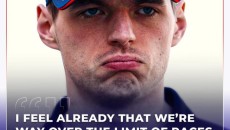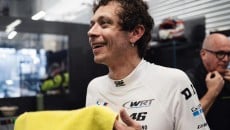The coronavirus emergency in Europe is slowly decreasing and there is starting to be a light at the end of the tunnel that could lead to a return to normal life… always assuming that after what has happened everyone's life can really return to normal. Sports activities will start to take place again, perhaps sacrificing the general public who will certainly not be able to attend live events, at least in the initial phase of the recovery.
It is an acceptable sacrifice, because the engine of business in sport is TV rights and the essential audience is television. As much as it is unsatisfactory for an enthusiast not to be able to see a great sporting event in person, the mere fact of being able to watch it on TV will represent an authentic breath of oxygen, for all fans of any sport.
MotoGP is not football: without an audience you can race, but at least it is a world championship
That is why work is underway to organize the MotoGP championship without the public and with the bare minimum of staff in the paddock. However, we also have to consider some aspects that involve MotoGP like all other sports. Take for example the national football leagues. La LIGA can resume regularly, the same for Serie A and for the Premier League and the Bundesliga. All these are important championships, which shift massive economic interests, but they are all held within national borders.
MotoGP is a world championship; in its original calendar it touches four continents and literally moves a community of around 3000 people around the world. The aspect that puts an enormous stronghold on the chances of taking part in a 'normal' world championship is becoming increasingly clear.
Holding races without spectators is acceptable. Holding races without team guests and with the number of technicians reduced to the bone is acceptable. Then there is the question of media, journalists, and photographers, but even for this problem it will be possible to somehow agree to a sacrifice, perhaps finding alternatives to allow meetings between journalists and pilots. This lockdown period is showing the potential of web interviews, so a technological solution could be applicable, albeit not desirable, to guarantee the quality of the information.
However, there is one point that is impossible to stem, that is the massive presence of Italians and Spaniards who form part of the group of ‘essential components’, who are those people who must necessarily be at the GPs. Just looking at the riders, it is clear that the presence of Italians and Spaniards is disproportionate to any other nationality. 56% of the riders are Italians and Spaniards. Extending our analysis to the teams, the imbalance is still already evident both because most of them are Italian or Spanish, and because also in those teams that do not have their nationality in either country, there are many technicians who come from one or from the other country. This is because the very backbone of the world championship is made up of Italians and Spaniards, the two countries that have the greatest expertise, preparation and probably history in this period of the championship.
Italy and Spain make up the DNA of the world championship, 56% of the riders come from these two countries
Certainly, there are the Japanese manufacturers and KTM who all play a fundamental role. But just by taking a walk in the pit lane you can see that most of the people involved in the track activity, which is the driving force behind everything, are Italian or Spanish. How many countries will allow Italians and Spaniards to enter without enforcing a quarantine when the emergency is over?
Needless to say, Dorna, a Spanish company, manages a huge part of the entire organization and at this moment runs a serious risk indeed if the ideas of the Spanish government were to be confirmed in the short term. All the IRTA trucks are located in Spain, like those of most Moto2 and Moto3 teams. If the borders of Spain were to remain closed until Christmas, there would really be no easy solution to follow.
Carmelo Ezpeleta, at the beginning of the crisis, said something specific: "We at Dorna are hard-headed" and everyone is sure that he will do everything possible to hold the championship in the best possible way. All that remains now is to hope that the head in question is actually hard enough to break down limits that seem increasingly impenetrable.









